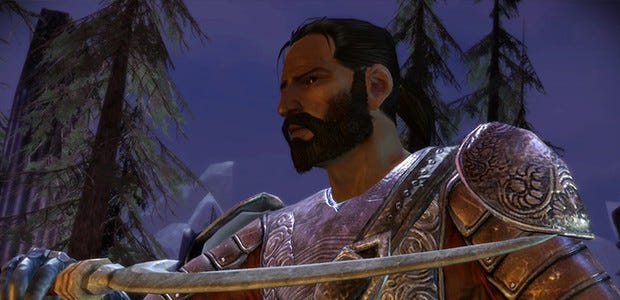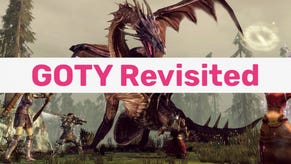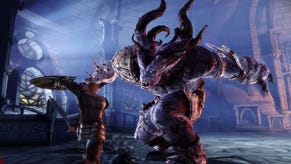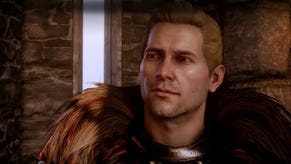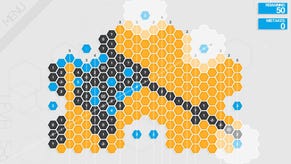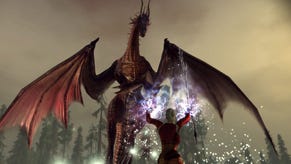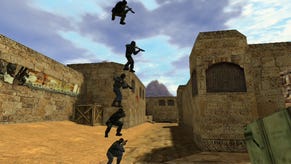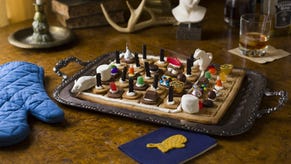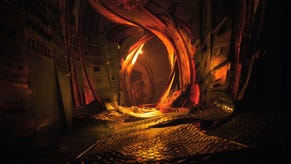Not Fade Away: How Dragon Age Origins Got Evil Right
(It Wasn't The Taint).
The difficulty with explaining why Dragon Age: Origins was super-duper top dog stuff is that on a surface level it was all a bit boring. Nasty creatures are coming to destroy your green, faintly damp-looking world! You've got to save the realm, perhaps because prophecies? Prophecies might be a thing, I suppose. Also: dwarves and elves and sometimes magic.
Thematically there's very little going on in Ferelden that hadn't already been flogged to oblivion by the rest of the genre, which makes Origins an even tougher sell to a culture now fixated with Game of Thrones. Decapitation makes an occasional appearance, but Origins is largely po-faced fare. What helps it succeed anyway is the one cliché it skewers beautifully, through its depiction of evil and a place called 'the fade'.
They say that everyone has their demons, but in Origins some people genuinely did. Believably mapping out the transition between 'bit of a wrong-un' to 'oh no everyone is dead' is a struggle that videogames routinely fumble. The problem is, it's an essential part of the formula for what needs to come next: Sexy Hero Saves Day With Morally Approved Murder.
For a game that showed you little more than a highlight reel of the realm you aimed to save, Origin's world created a sense of sturdiness. Watching as the blight encroached, wiping out settlements across the world map created an atmosphere of tension and dread that obviously felt at odds with the traditional RPG opportunity to meander on an apparently infinite basis. Yet within a handful of hours you’re under the game's spell, your mind slipping easily into the fiction like a buttered rubber duck sliding into a bath.
The get out of jail card that Origins played beautifully all came from a place known as the fade - an ethereal realm full of magical fun. Only magic users can explore the fade of their own will, but others can often tap into it without really knowing what they're doing. While dreaming at night most of Dragon Age's races tap into the fade while fast asleep, opening up their thoughts and fears to monsters window-shopping for delicious nightmares.
Demons themselves have a simple hierarchy: Demons that latch onto specific, subtle emotions are far more powerful than those who prey on minds afflicted by more basic sins. Someone possessed by a lust demon, for example, wouldn't be terribly difficult to spot in the real world - imagine a Cheeky Girls album without any of the nuance.
Rage demons don't tend to last long either, chucking sanity out of the window and turning their victims into bloodthirsty mugs. Only powerful demons can make the leap into the mere-ole-mortally realm without losing a substantial number of marbles, and worryingly it's these chaps that are the hardest to spot. Despite the lore's chatter of Demons being linked to "sin" the reality in Origins is often a hell of a lot sadder, with people with often good intentions sliding slowly into the gloopy depths of evil. Wanting a loved one not to die - for example - could potentially see you getting possessed by a desire demon. Rough.
Videogames struggle with subtlety at the best of times, and shifts in character motivations often feel like they've been approached by a man wearing boxing gloves made of ham. The demons of the fade always struck me as a clever method of occasionally avoiding this common pitfall - allowing the game's narrative to shunt character motivations to the extremities required without the progression feeling jarring. Believable villains aren't easy to create, and videogames traditionally require fresh ones to be pumped-in almost inexhaustibly.
There's a degree of having your cake and eating it here, too - characters being possessed against their will allows you both the desire to destroy and the ability to feel a sense of pity. I've always felt that the very best villains should fill you with a sense of melancholy, leaving part of your brain always hopelessly wishing that there might be a way to repair what was broken. Origins allowed you this cliche, but always at a serious price. Pulling someone from the clutches of a demon was rarely achieved without nasty costs.
In the same way that Origins handled the theme of racial tensions well when it turned out that humans behaved like total dicks to elves, the way that the fade acted as physical manifestation of psychological issues resonated strongly with me. It's a crude but powerful amplification of the idea that bottling up dark thoughts and emotions eventually see you consumed by your own obsessions, causing yourself and those around you harm.
Universally available sexy fun-times aren't the only byproduct of game design influenced by empathetic minds. Fabricated worlds can only ever feel as real as the characters that they play host to, and beneath the melodramatic mind-games of Origins' demons, it was the faint sadness of human flaws that always shone through. It's the game's humanity that makes the it so special in the first place.
If demons were the fiends behind every single pickle, then naturally Dragon Age would have been a pile of guffsticks. Thankfully the world contained plenty of traditional bastards too, letting you enter every encounter playing the mental game of 'Demon or Dick?'
Fantasy dream-lands like the fade can so easily exist in a vacuum, too - narrative tools for a fun change in scenery, loosely tied in as throwaway lore. Crucially, the fade sits comfortably within Origins, its consequences rippling through the make-up of the world's races and their cultures. Mages must prove themselves mentally strong enough to fend off demons before earning the right to tap into its powers, for example - a legal restriction with implications echoed clearly throughout the rest of the world. Meanwhile, given that they reside underground and are socially detached from the outside world, it's hugely fitting that the dwarves don't dream; the back-stabbing gits with their insular politics are left to brew in subterranean mines, creating stubby, stoic characters that are even tougher to trust.
Outwardly vanilla and muddy-green stuff, few elements of Dragon Age Origins' setting and lore seem unique enough to explain why it meant so much to so many, but the difficulty of celebrating single aspects of the game without spiralling off to talk about everything else is indicative of its ultimate strength: Origins was a carefully woven mesh, a collection of themes, characters, and ideas seamlessly tied together in a way that made sense.
We always approach fantasy fiction with a desire to be tricked, to fall under its spell - but it's rare that this intoxicating lure is met by games that truly manage to live up to the task. The world of Origins - where damaged dreams could play host to demons - resonated with me in an unexpected fashion. Blood adorned the box while cleavage and gore dominated the screenshots, but beneath the same-old surface was a subtle game that's still worth playing today.
